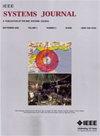Edge Server and Service Deployment Considering Profit With Improved PSO in IoV
IF 4.4
3区 计算机科学
Q1 COMPUTER SCIENCE, INFORMATION SYSTEMS
引用次数: 0
Abstract
Mobile edge computing (MEC) plays a pivotal role in the Internet of Vehicles and the Internet of Things. Edge server deployment is the initial step in establishing edge computing systems, which impact the overall system performance significantly. Besides, the performance of an edge computing system is also contingent upon the type of service deployed on servers, in the case of the same server deployment, different deployment of services will bring different profits. Most current studies concentrate solely on the former aspect, neglecting the optimization of service deployment in MEC system. In this article, we proposed a two-step method KPSOP for edge server and edge service deployment, aiming to reduce time delay, balance load, and improve the profit of MEC system, and KPSOP includes clustering algorithm and heuristic algorithm. We considered the location distribution of base stations, the task requests of vehicle users, the resource limitations of edge servers, etc. First, the edge server deployment was completed with the goal of minimizing time delay and load balancing. Second, the service deployment was completed with the goal of maximizing edge server profit. The experiments were based on real world base station information. The simulation results validate that our algorithm is more stable and converges faster. In addition, compared to other algorithms, it performs better in load balance and increasing profit.基于改进粒子群的车联网边缘服务器和服务部署
移动边缘计算(MEC)在车联网和物联网中发挥着举足轻重的作用。边缘服务器部署是建立边缘计算系统的第一步,它对整个系统的性能影响很大。此外,边缘计算系统的性能还取决于服务器上部署的服务类型,在相同服务器部署的情况下,不同的服务部署将带来不同的利润。目前的研究大多集中在前一个方面,而忽略了MEC系统中业务部署的优化。本文提出了一种边缘服务器和边缘服务部署的两步法KPSOP,旨在减少MEC系统的时延、平衡负载和提高利润,KPSOP包括聚类算法和启发式算法。考虑了基站的位置分布、车辆用户的任务请求、边缘服务器的资源限制等问题。首先,以最小化时间延迟和负载平衡为目标完成了边缘服务器部署。其次,以最大化边缘服务器利润为目标完成服务部署。实验是基于真实世界的基站信息。仿真结果验证了该算法的稳定性和收敛速度。此外,与其他算法相比,它在负载平衡和增加利润方面表现更好。
本文章由计算机程序翻译,如有差异,请以英文原文为准。
求助全文
约1分钟内获得全文
求助全文
来源期刊

IEEE Systems Journal
工程技术-电信学
CiteScore
9.80
自引率
6.80%
发文量
572
审稿时长
4.9 months
期刊介绍:
This publication provides a systems-level, focused forum for application-oriented manuscripts that address complex systems and system-of-systems of national and global significance. It intends to encourage and facilitate cooperation and interaction among IEEE Societies with systems-level and systems engineering interest, and to attract non-IEEE contributors and readers from around the globe. Our IEEE Systems Council job is to address issues in new ways that are not solvable in the domains of the existing IEEE or other societies or global organizations. These problems do not fit within traditional hierarchical boundaries. For example, disaster response such as that triggered by Hurricane Katrina, tsunamis, or current volcanic eruptions is not solvable by pure engineering solutions. We need to think about changing and enlarging the paradigm to include systems issues.
 求助内容:
求助内容: 应助结果提醒方式:
应助结果提醒方式:


